- BorgWarner
- Joseph Fadool
- Frederic Lissalde
- Alexis P. Michas
- electric vehicle
- Ford Motor Company
- Continental Automotive Systems
Joseph Fadool To Succeed Frederic Lissalde As BorgWarner CEO
- By MT Bureau
- November 11, 2024
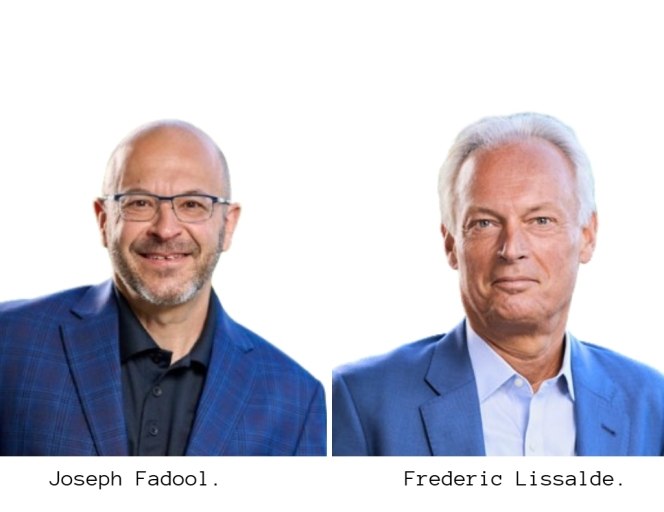
American automotive component supplier BorgWarner has announced leadership change with Joseph Fadool, Executive Vice-President and Chief Operating Officer (COO), to be elevated as the new President and Chief Executive Officer (CEO).
He will also become a member of BorgWarner’s Board of Directors effective at the close of business on 6 February, 2025.
Fadool is set to succeed Frederic Lissalde who will retire from his role as President and CEO and step down from the Board of Directors. Lissalde will serve in an advisory role until 30 August, 2025 to support the transition.
Alexis P. Michas, Non-Executive Chairman of the Board of Directors, BorgWarner, said, “As CEO, Fred has reshaped our product portfolio and set BorgWarner on a path to lead the world’s energy transition to electrified vehicles. Fred has been an exceptional leader and embodies our beliefs, values and innovative culture. We believe Fred’s passion for our business and customer focus have positioned the company for success for years to come. We look forward to celebrating his career over the coming months as we transition to our next CEO and send Fred off to a well-deserved retirement.”
“Today’s announcement reflects the Board’s thoughtful approach to succession planning. Joe has been a trusted member of our leadership team for 14 years, and we are excited to name him as BorgWarner’s next President and CEO. Having served as a President of four business units, Joe has an incredibly deep understanding of our industry, technology focused product portfolio, operations, culture and strong customer relationships. This makes Joe very well prepared to lead BorgWarner to achieve new levels of success and value creation for our stakeholders,” he said.
Frederic Lissalde said, “It has been a privilege to work alongside our talented BorgWarner team for 25 years, and I am incredibly proud of all we have accomplished. Together, we have carefully curated a resilient portfolio of market leading technologies that are accelerating the world’s transition to electrification, which we believe will be successful under different regional powertrain adoption scenarios. I know that Joe will step seamlessly into the CEO role and continue guiding BorgWarner to even greater heights. His track record of operational excellence and dynamic thinking make him the right person for the role, and I am excited to follow the Company’s continued success with him at the helm.”
Joseph Fadool said, “Fred has been an incredible mentor to me, and I am honoured to be appointed the next CEO of BorgWarner. Over the last 14 years, I have worked closely with BorgWarner’s talented workforce and our customers to solve the world’s propulsion problems in new and innovative ways. I believe BorgWarner’s world-class product portfolio, innovative and customer-centric culture, and strong operating model position the company well to drive favourable business results for many years. As we look to capture growth opportunities ahead, we will stay focused on enhancing our strong product portfolio, efficiently managing our costs to stay competitive and supporting our dynamic teams around the globe to deliver value to our customers. We believe this focus will further strengthen our product leadership position. The future for BorgWarner is bright and I’m incredibly excited to get started in my new role.”
Fadool joined BorgWarner in 2010 and has held a number of top positions across the company, including Chief Operating Officer and President and General Manager of Emissions, Thermal and Turbo Systems, Morse Systems and TorqTransfer Systems, the precursor to PowerDrive Systems. He has also previously worked at Continental Automotive Systems as Vice-President for North American Electronic Operations and at Ford Motor Company.
He holds a Bachelor of Science in electrical engineering from Lawrence Technological University and a Master of Science in computer and electronic controls from Wayne State University.
Toyoda Gosei Completes Acquisition Of Ashimori Industry
- By MT Bureau
- March 04, 2026
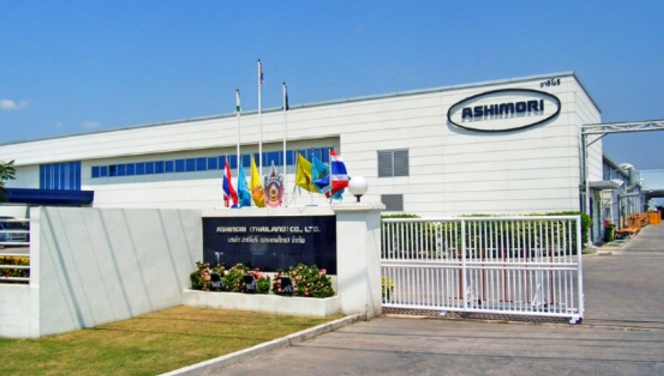
Toyoda Gosei Co., has acquired all shares of Ashimori Industry Co., effective 1 March 2026 and has now completed the process of making Ashimori Industry its wholly-owned subsidiary.
The acquisition follows a capital and business alliance agreement established in May 2021. In November 2023, Toyoda Gosei made Ashimori Industry an equity-method affiliate to integrate product development, sales, procurement and production.
Toyoda Gosei intends to operate as a supplier of safety systems by combining its airbag technologies with Ashimori Industry’s seatbelt products. The company aims to facilitate the development of protection systems that use both components to reduce traffic fatalities.
The move will enable expediting management resource allocation in the safety systems division. It will further promote integrated control systems for airbags and seatbelts to meet market demand.
The deal also focuses on the growth of Ashimori Industry’s functional products business, specifically the PALTEM (Pipeline Automatic Lining SysTEM) method. This technology is used for the rehabilitation of aging pipeline infrastructure, a sector currently experiencing rising demand.
For the unversed, established in December 1935, Ashimori Industry reported revenue of USD 537 million in March 2025. It employees 2,358 people and is involved in the manufacturing of seatbelts, airbags, synthetic rope and pipe rehabilitation systems.
Toyoda Gosei stated that the move is designed to maximise synergies and address societal challenges related to infrastructure and road safety.
Adient Introduces Sculpted Soft Trim Technology For Automotive Seating
- By MT Bureau
- February 26, 2026
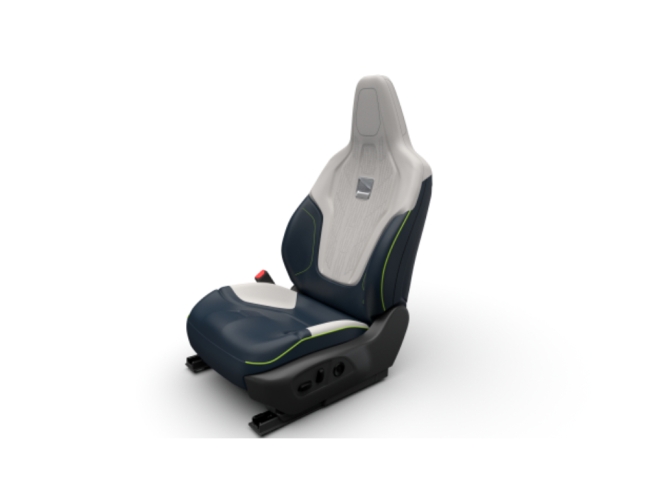
Adient, a supplier of automotive seating, has launched Sculpted Soft Trim, a manufacturing technology designed to provide new design options for vehicle interiors. The product is a breathable, formed trim solution that can be applied to large panels or components such as armrests, headrests and child seat anchor covers.
The technology uses an automated forming process to create shapes, reducing the requirement for traditional manual sewing. This method allows for the creation of concave surfaces and 3D shapes that were previously difficult to execute using standard cut-and-sew techniques.
Sculpted Soft Trim is designed to improve craftsmanship while lowering labour requirements. In applications such as rear seat child anchor locations, the system can replace up to twelve individual patterns and sew lines with a single formed component.
Key features of the technology include:
- Material Compatibility: Support for a range of fabrics and vinyl materials.
- Surface Detail: Capability to achieve 3-dimensional concavity without losing grain detail.
- Customisation: Ability to add embossed or debossed textures, graphics and badging within the same tooling process.
- Material Integration: Facility to pre-sew and form dissimilar materials together.
- Firmness Control: Variable firmness options to meet specific application requirements.
Adient has confirmed that Sculpted Soft Trim is available globally. The technology is scheduled to enter production on vehicles from several original equipment manufacturers (OEMs) during 2026. According to the company, the process reduces cycle times by approximately 50 percent compared to traditional forming methods.
Mike Maddelein, Vice-President of engineering in the Americas, Adient, said, “Sculpted Soft Trim fundamentally changes what’s possible in seat trim design by combining premium aesthetics with meaningful manufacturing efficiency. With cycle times reduced to roughly 50 percent of traditional forming methods, this technology delivers both speed and quality. In addition, decorative sewing, quilting and embossed or debossed features introduce another level of specialisation, all executed with tight tolerance control to ensure consistent, high-end craftsmanship at scale.”
Dhoot Transmission, FourFront Join Forces For Integrated Electronics & Electrical Manufacturing Platform
- By MT Bureau
- February 24, 2026
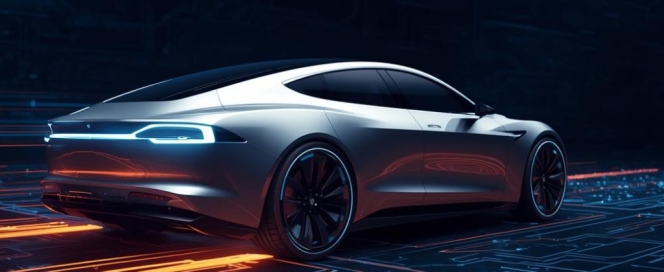
Dhoot Transmission, backed by Bain Capital, has announced a partnership and merger with Pune-based FourFront. Under the agreement, FourFront will merge with a subsidiary of Dhoot Transmission to create an integrated automotive electronics and electrical manufacturing platform.
FourFront is a Tier-1 supplier providing electro-mechanical and electronic solutions to passenger and commercial vehicle manufacturers. The merger is intended to address the increasing electronics content in vehicles and the requirements of the electric vehicle (EV) sector.
The combined entity will leverage complementary capabilities in manufacturing and engineering. FourFront’s portfolio includes:
- Power Electronics: Components for voltage conversion and management in EVs.
- Electromechanical Switches: Interface solutions for vehicle cabins and systems.
- EV Products: Specialised hardware for electric drivetrains.
The platform aims to provide end-to-end solutions for original equipment manufacturers (OEMs) across internal combustion engine and electric vehicle programmes. Bain Capital will provide global automotive expertise to support the scale of the platform and the adoption of technologies such as Advanced Driver Assistance Systems (ADAS).
Rahul Dhoot, Managing Director, Dhoot Transmission Group, said, “This partnership is closely aligned with our strategy of building a differentiated automotive platform with strong capabilities in electronics and electrical systems. FourFront has developed trusted relationships with OEM customers and built meaningful expertise in power electronics. As part of the Dhoot platform, FourFront and its team will be well positioned to continue delivering the same level of quality and service levels to customers while benefiting from our scale, manufacturing depth, and long-term investment approach.”
Saahil Bhatia, Partner, Bain Capital, said, “India continues to be an economy with a strong long-term growth trajectory, supported by favourable demographics, rising domestic consumption, and sustained investment in manufacturing and infrastructure. Against this backdrop, we see a compelling opportunity to support platforms like Dhoot, and now FourFront, as they scale capabilities, deepen OEM partnerships, and build high-quality automotive solutions aligned with evolving technologies such as ADAS and increasing electronics content across vehicle segments.”
Shrikant Neurgaonkar, Chairperson and Managing Director, FourFront, stated, “Over the last 15+ years, FourFront has built very a strong foundation and is recognised for innovative solutions, superior design capabilities, and responsiveness towards customer demands. The partnership with Dhoot Transmission and Bain Capital will put us in a strong position to further enhance our product offerings and continue to invest in manufacturing facilities, R&D and people for the next phase of growth. We’re very excited to partner with Dhoot Transmission to create an electronics platform focused on technical and operational excellence.”
Marelli And Motherson Open Automotive Lighting Plant In Sanand
- By MT Bureau
- February 23, 2026
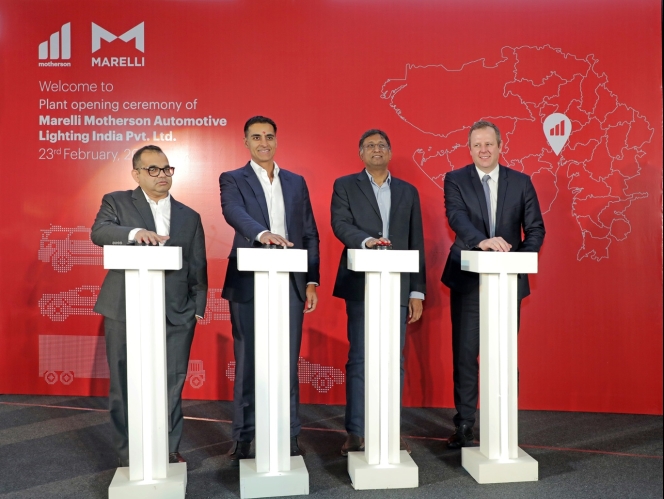
Marelli and its joint venture partner Motherson have inaugurated a manufacturing facility for automotive lighting in Sanand, Gujarat. This plant is the second facility for the Marelli Motherson Lighting India (MMLI) joint venture in the region and increases Marelli’s total footprint in India to 16 production sites and three R&D centres.
The facility focuses on exterior lighting systems for the passenger vehicle market. It introduces several technologies to India, including the production of single-piece lamps that span the full width of a vehicle. These components create light signatures up to two metres in length for the front and rear of cars.
The plant localises the production of headlamp modules with a height of 17 millimetres. These modules can be configured with adaptive driving beam (ADB), high-beam boost, or ambient lighting.
To manufacture these large lighting elements, the facility has been equipped with high-tonnage injection moulding machines. The building structure includes overhead cranes specifically designed for heavy tooling, a first for a lighting plant in India.
The Sanand site incorporates rooftop solar installations and plans to source further energy through open-access green power. As part of its corporate social responsibility, MMLI has planted 1,700 trees in the surrounding area to assist with carbon absorption.
Established in 2008, MMLI is a 50:50 joint venture that employs over 4,500 people. It operates eight plants across Pune, Sanand, Bawal, and Noida, supported by a design centre and a PCB production facility.
Frank Huber, President, Marelli’s Lighting business, said, “Our new facility in Sanand is a key milestone in bringing advanced lighting technologies to our customers in India. Together with our partner Motherson, we are uniting global innovation with strong local manufacturing capabilities to deliver cutting-edge solutions for the Indian market. Our joint venture continues to be a great success — built on Marelli’s global technology leadership, Motherson’s great infrastructure, execution excellence and deep customer relationships on the subcontinent, and the significant autonomy both partners have entrusted to the MMLI team since its establishment in 2008.”
Laksh Vaaman Sehgal, Vice-Chairman, Motherson, stated, “The inauguration of our cutting-edge automotive lighting plant underscores Motherson’s unwavering commitment to innovation, excellence, and customer-centricity. This strategic investment strengthens our ability to deliver advanced, future-ready lighting solutions while meeting the evolving needs of our customers. We deeply appreciate the trust and support of our customers, which has been instrumental in achieving this significant milestone.”






Comments (0)
ADD COMMENT